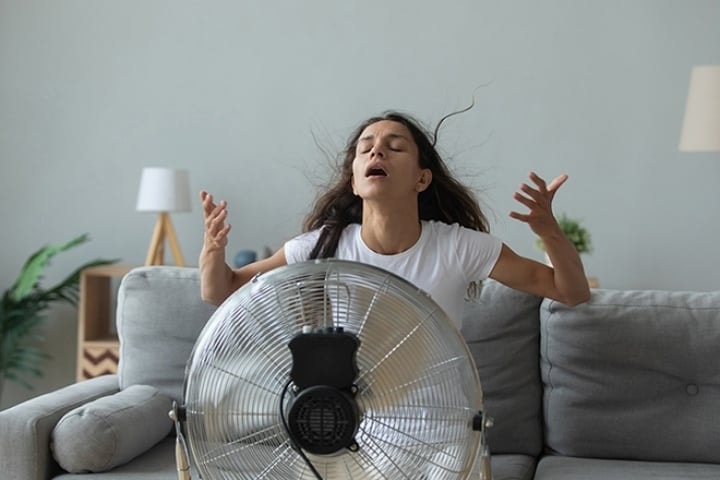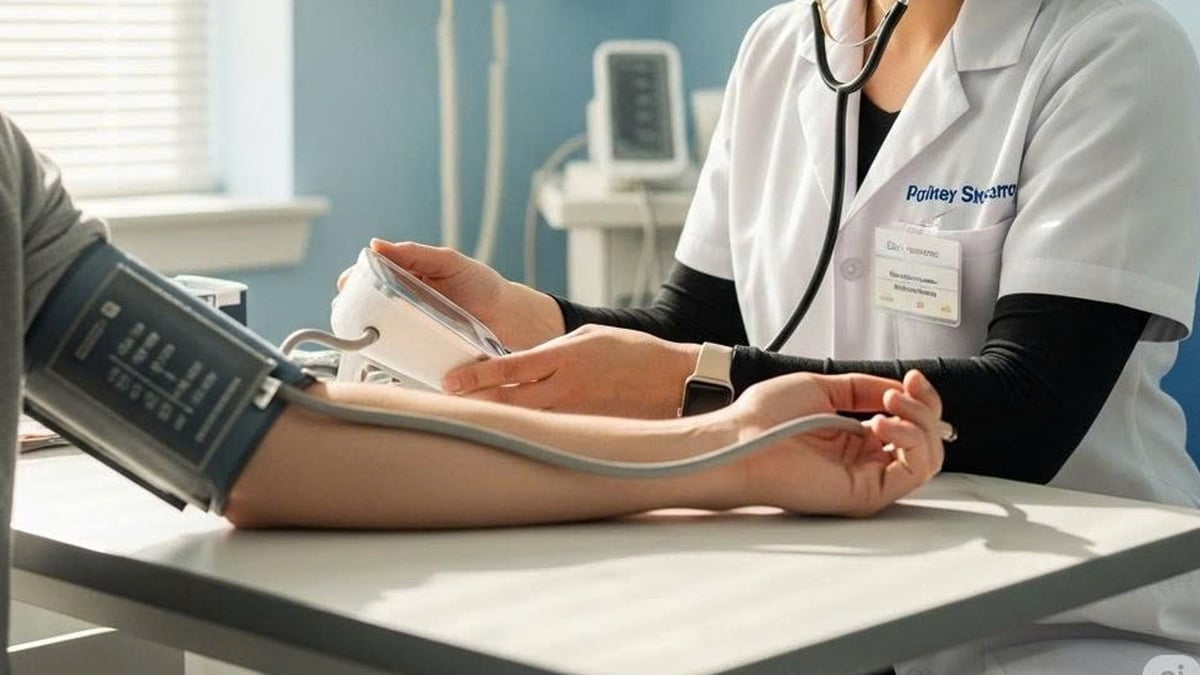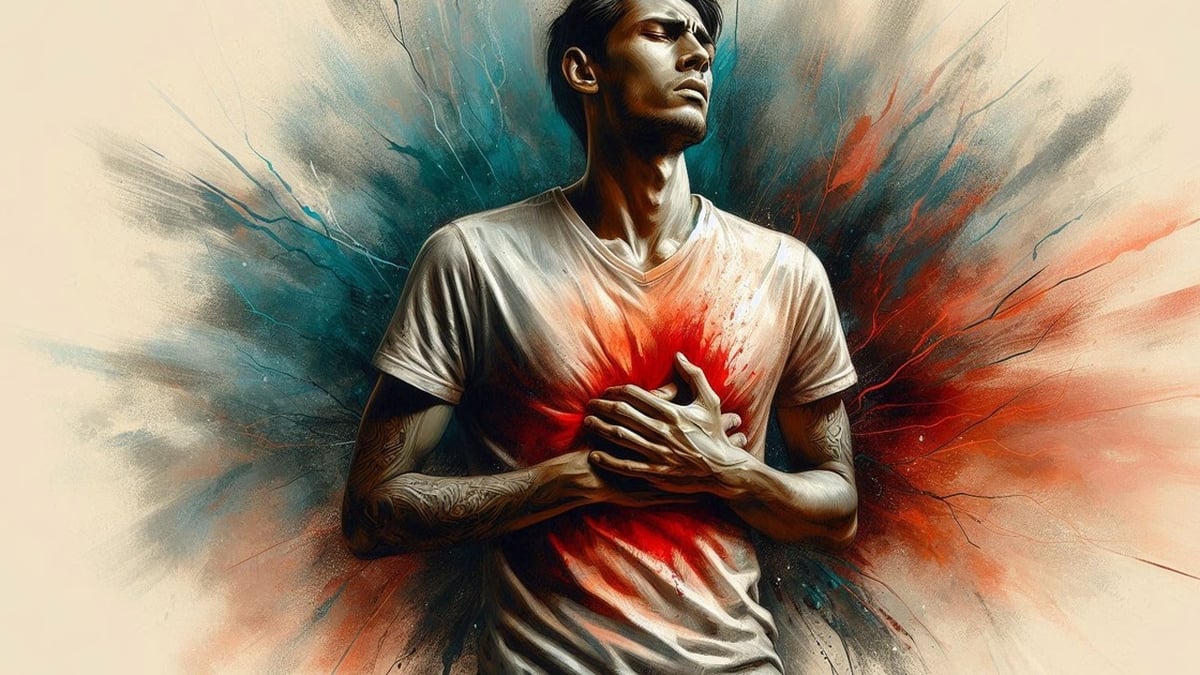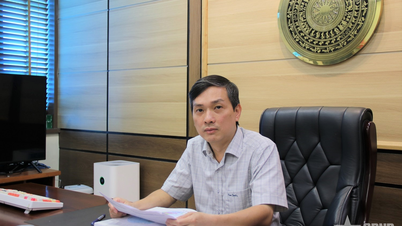
According to specialist doctor II Nguyen Tien Dung, Deputy Director of the Stroke Center, Bach Mai Hospital, stroke can occur at any time of the year, but the risk increases in the summer due to hot weather, dehydration and heat regulation disorders.
Here are some common but dangerous habits you should avoid on hot days:
Bathe immediately after being in the sun
After outdoor activities, the body sweats a lot, many people have the habit of taking a shower immediately to cool down. However, this causes the body temperature to drop suddenly, the pores and micro-vessels under the skin to contract, and blood circulation is hindered.
Not only does this seemingly "cooling" action cause colds, it can also lead to blood pressure disorders, heart rhythm disorders and strokes.
Sitting in front of a fan or air conditioner blowing directly on you
Under the influence of hot sun, blood vessels dilate to release heat. If sitting in front of a strong cold wind, sweat evaporates quickly, skin temperature drops suddenly, leading to an imbalance of heat between inside and outside the body. Many people can then feel dizzy, lightheaded, or even have a stroke on the spot.
Set the air conditioner temperature too low
A sudden change from a hot room to a cold room can cause dizziness, affecting blood pressure and the cardiovascular system. If the air conditioning temperature is too low, sweat cannot evaporate, seeping back into the body causing deep cold, blood vessels constrict rapidly - a factor that can easily cause high blood pressure and stroke, especially in the elderly or those with underlying diseases.
Drink ice water right after coming back from the sun
Cold water may quench thirst instantly, but it can cause heat shock if consumed immediately after being in the sun. This sudden temperature difference not only affects the digestive system but also disrupts body temperature regulation, increasing the risk of stroke.
Lazy to drink water
Dehydration is the leading cause of stroke in the summer. When the body lacks water, the blood becomes thicker, blood pressure increases, and circulation is poor – factors that increase the risk of stroke. Elderly people, people who work outdoors or exercise a lot need to pay attention to replenishing water adequately and properly.
Excessive physical activity in the sun
Intense exercise or working under the sun causes the body to quickly lose water, which can easily lead to heatstroke, electrolyte imbalance, and stroke. People with underlying diseases such as high blood pressure, diabetes, and cardiovascular disease are more likely to experience dangerous complications.
How to prevent stroke in summer
To protect health, experts recommend:
- Do not bathe immediately after being in the sun. Rest for 15-20 minutes to stabilize your body temperature, then wipe your body with a damp towel before bathing your whole body.
- Avoid letting the air conditioner or fan blow directly on you, and do not set the air conditioner temperature too low. The room temperature should not differ from the outside by more than 7 degrees Celsius.
- Do not drink cold water immediately after being in the sun, instead drink cool water or filtered water to cool down slowly.
- Limit going out during peak sun hours (10am - 4pm). If you must go out, cover up well and wear loose clothing.
- Drink enough water every day, an average of 1.5 - 2 liters for normal people; people who are physically active need 2.7 - 3.7 liters/day.
- Exercise regularly and avoid strenuous exercise in the sun. If you have an underlying medical condition, consult your doctor before engaging in physical activity.
Summer is not just about heat, it also poses many health risks. Just a few small adjustments to your daily routine can help you and your loved ones avoid serious consequences.
TB (according to VTC)Source: https://baohaiphongplus.vn/6-thoi-quen-de-gay-dot-quy-mua-he-nhieu-nguoi-viet-vo-tu-mac-phai-416265.html


































































































Comment (0)